Textile House in Peru by Ghezzi Novak has concrete walls informed by woven fibres
Architecture studio Ghezzi Novak has completed this house on Peru's coast with weathered concrete blocks it describes as like "fibres weaved into a fabric". Textile House is situated on a level site that provides views of the distant desert and ocean landscapes in Paracas. The Peruvian coastal town is known for its rich cultural heritage, The post Textile House in Peru by Ghezzi Novak has concrete walls informed by woven fibres appeared first on Dezeen.

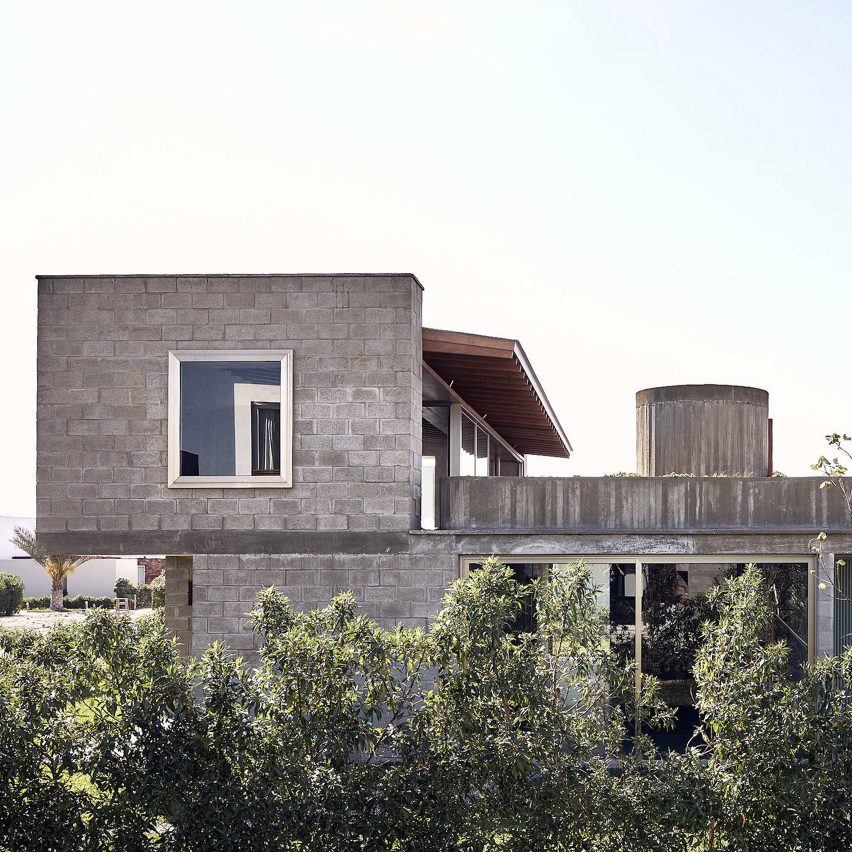
Architecture studio Ghezzi Novak has completed this house on Peru's coast with weathered concrete blocks it describes as like "fibres weaved into a fabric".
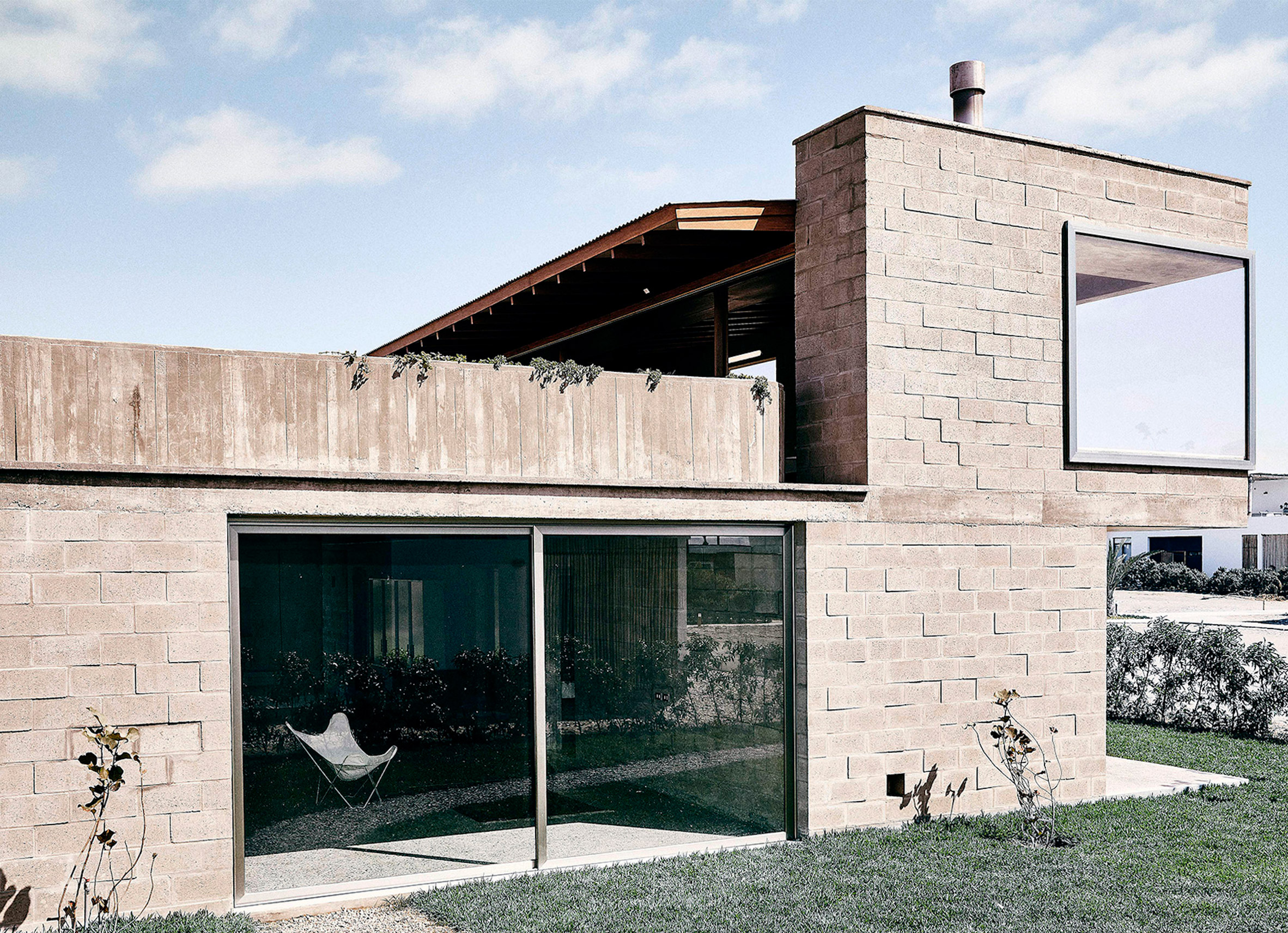
Textile House is situated on a level site that provides views of the distant desert and ocean landscapes in Paracas. The Peruvian coastal town is known for its rich cultural heritage, including its textiles.
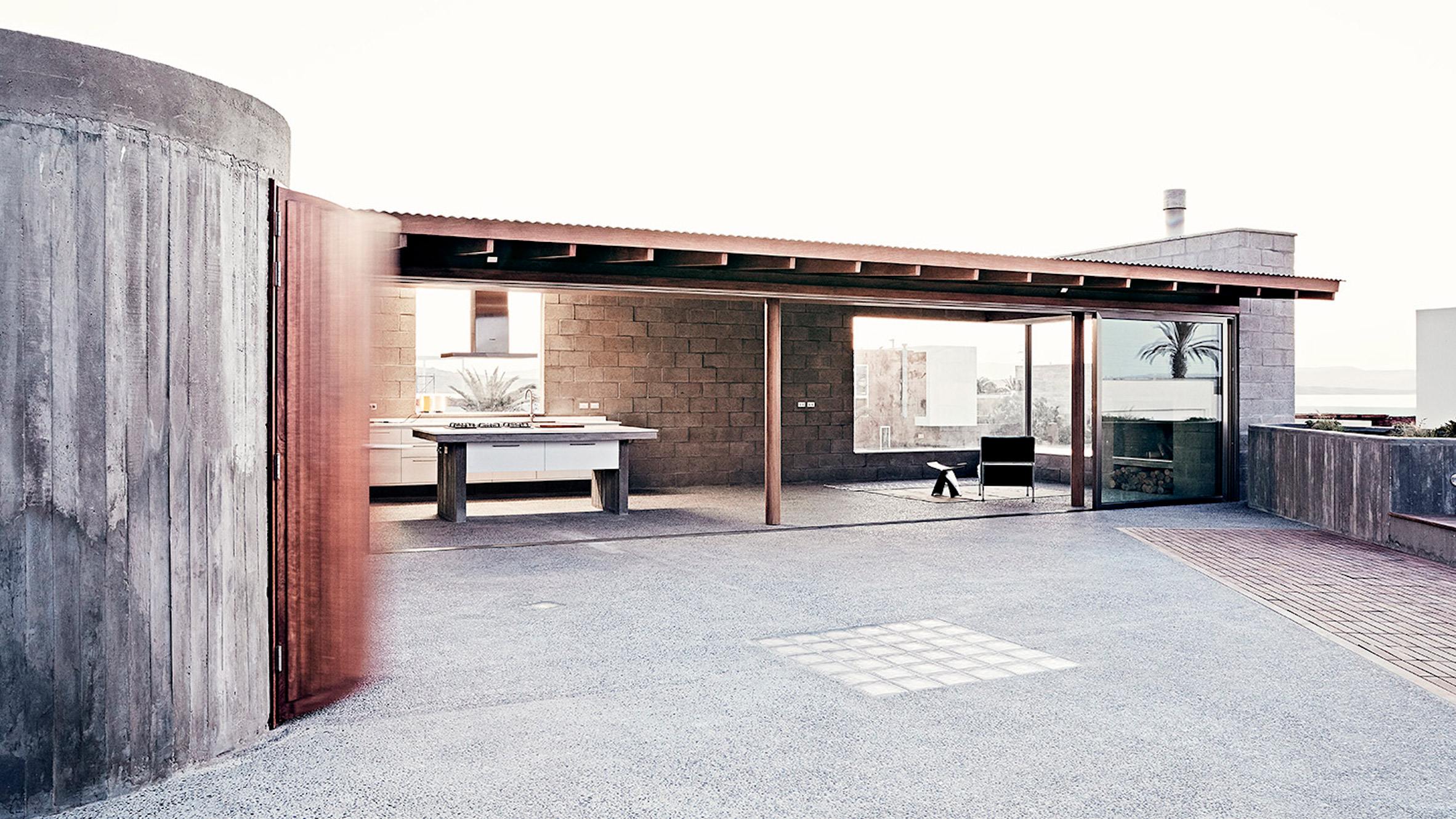
The Lima studio chose concrete blocks to echo the pattern and texture of woven fabrics to the geometric residence.
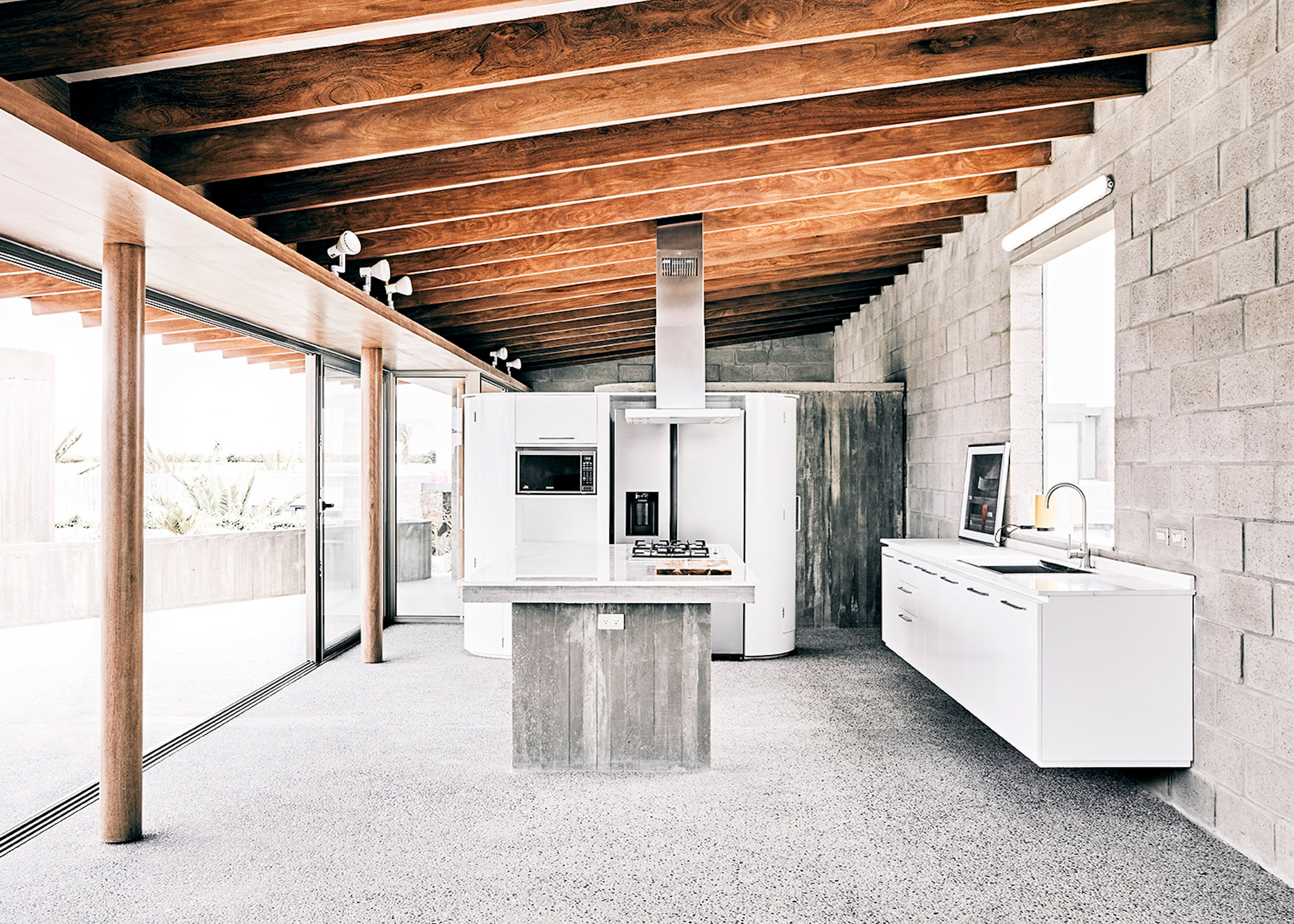
"For us, the fascinating textile legacy the Paracas culture left behind is a remarkable stimulus, and an opportunity to navigate beyond a merely formal pre-Columbian narrative," Ghezzi Novak said.
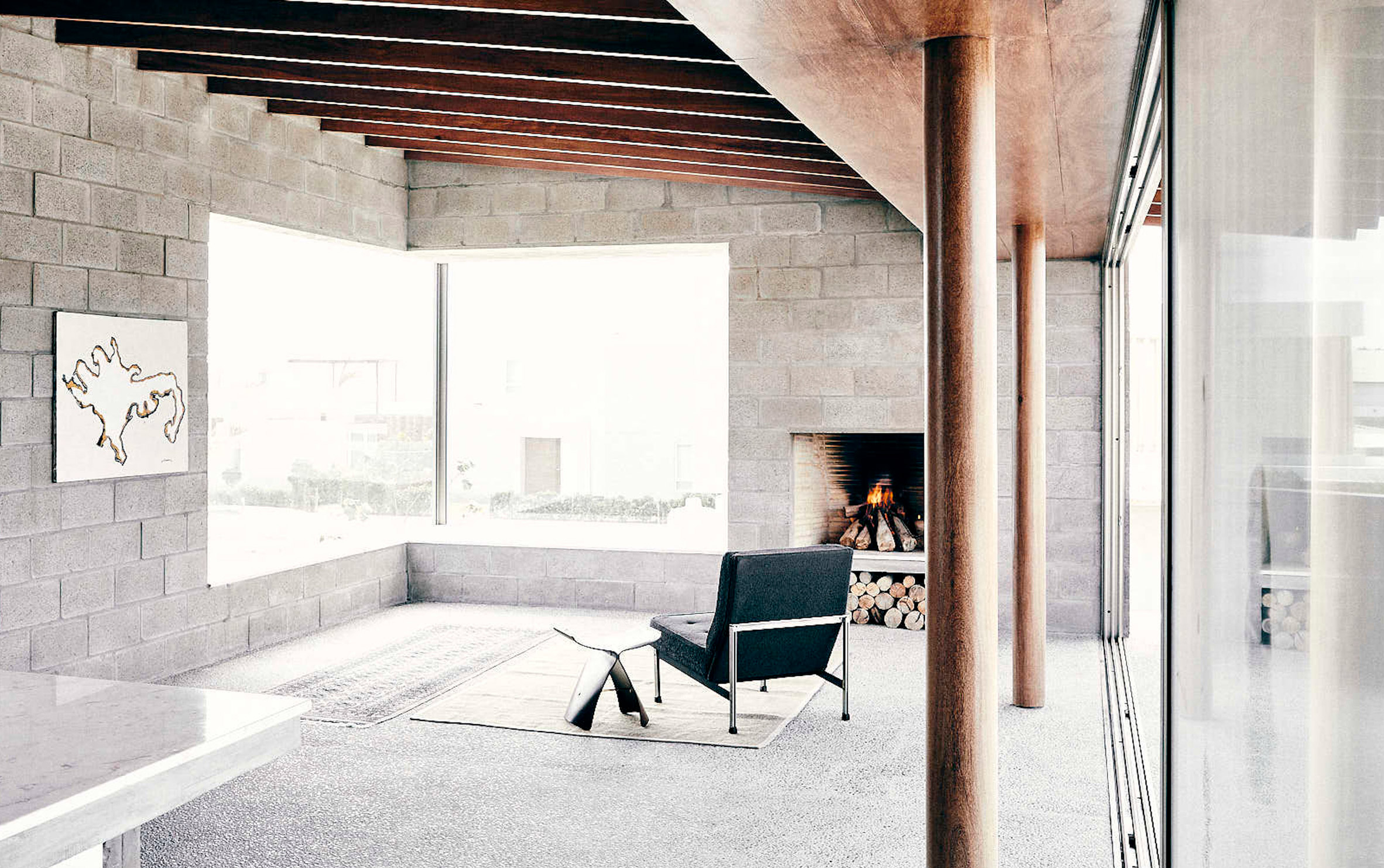
"We treat the constructive system as a textile," the studio added. "The concrete blocks are fibres weaved into a fabric that internally resolves technical and structural components to exploit its spatial and tactile qualities."
A cylindrical volume concealing a spiralling wood staircase protrudes from the rooftop, which houses a jacuzzi, pool and gardens.
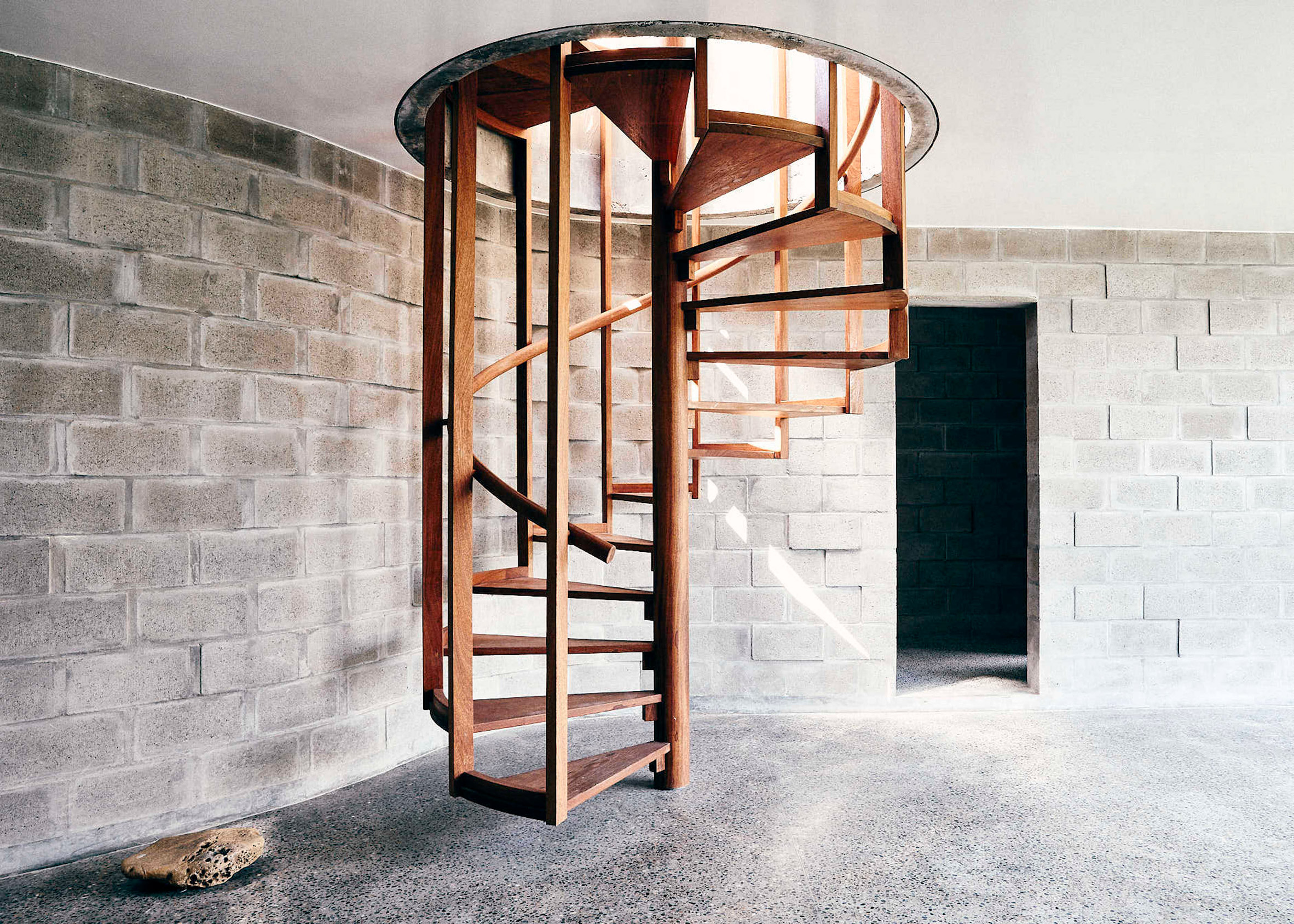
The studio has oriented the layout towards the south and used rough materials and plant boxes to curtail the intense winds of the coastal region. Hermetic openings around the entrances block the nearby desert sand from entering the house.
Metal roofing spans over a series of wood beams and planks to form shaded areas over the outdoor kitchen and living areas located on the rooftop terrace.
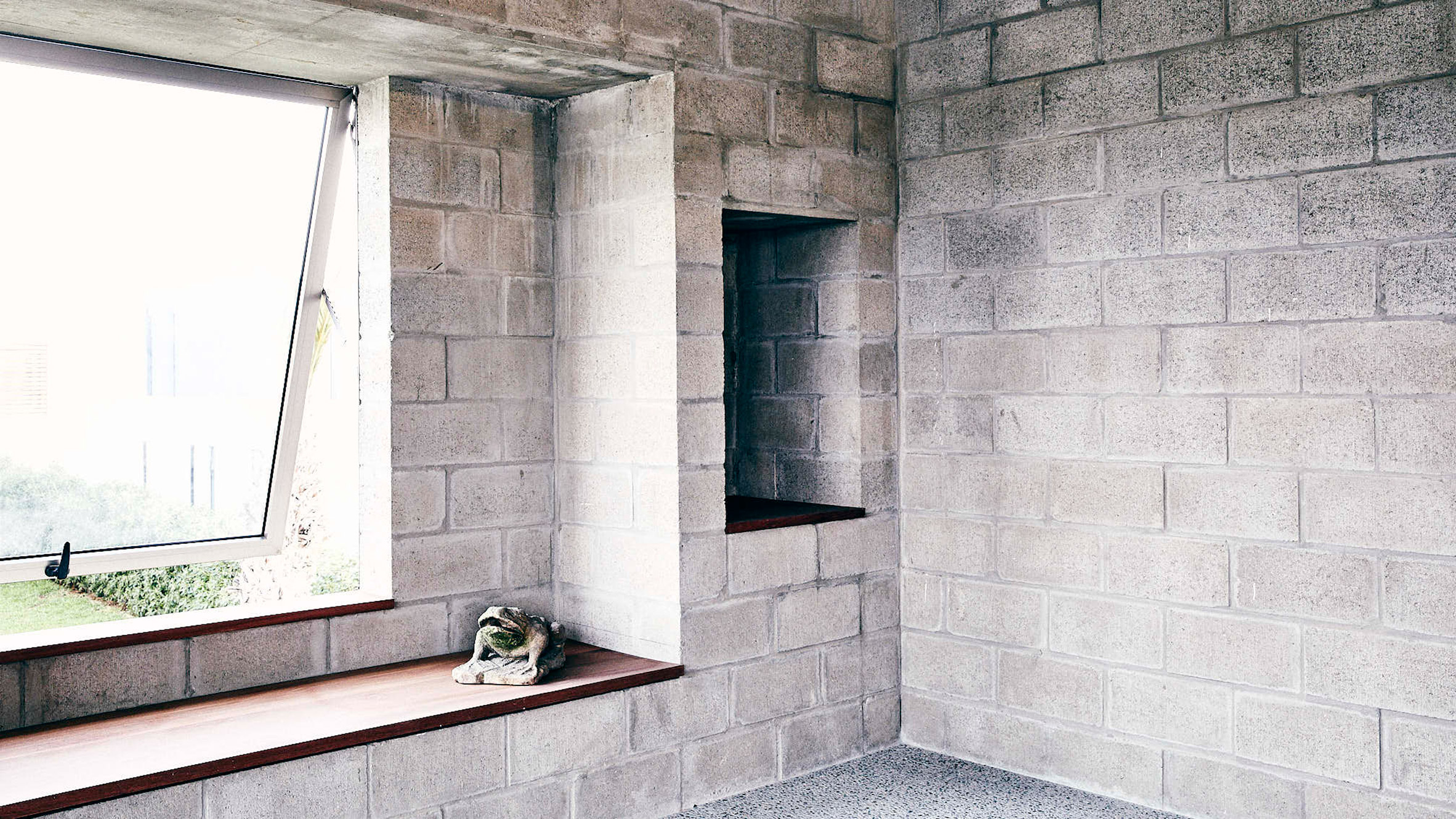
Large glass windows and sliding doors arranged across the house's facade brighten the dim, grey interiors and allow for views of the picturesque surroundings.
"The concrete block is the material expression of the house; its cool and dim interior contrasts with the intensely bright sunny exterior," it added.
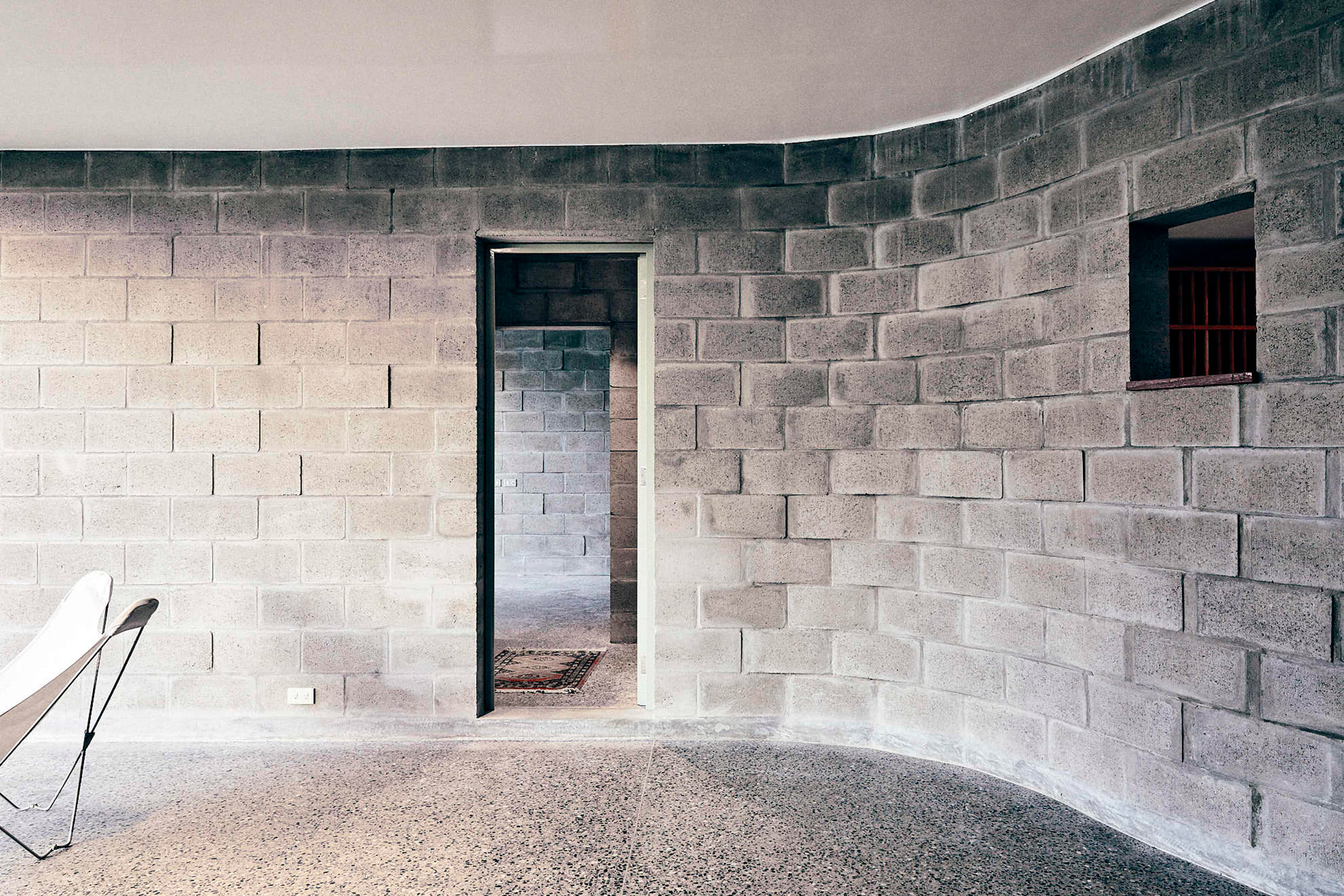
Inside, the bare concrete walls are paired with mottled concrete floors and wood accents. These include the spiral staircase that leads to the rooftop, the beams and planks that extend across the ceiling and a series of doors.
On the ground floor, a curving wall cuts through the interior to section off five bedrooms. Each of the bedrooms is fronted with a sliding glass door that opens onto a private patio.
In addition to the raised pools and gardens, a full kitchen and large lounge area occupy the roof terrace.
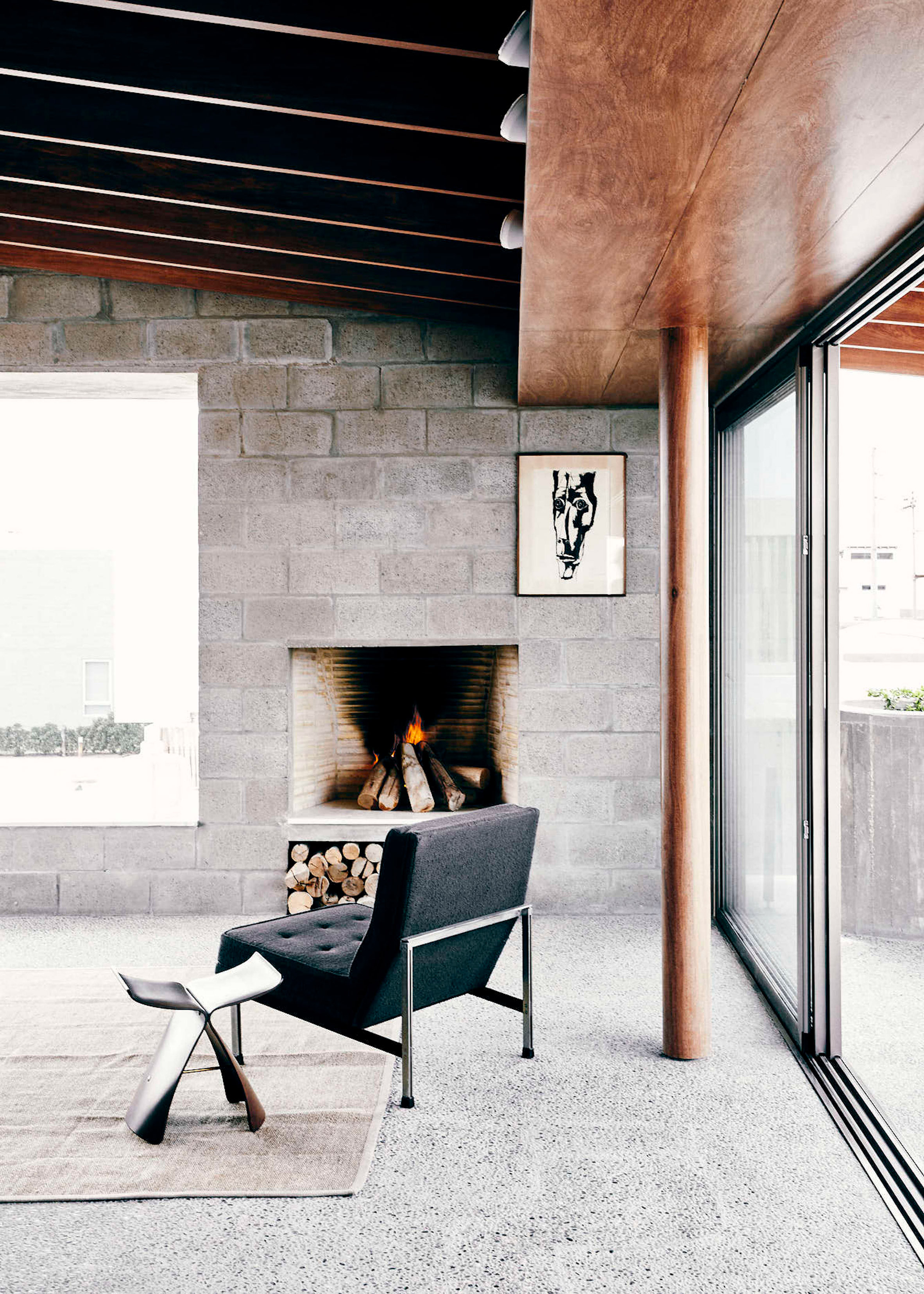
White appliances with black hardware stand out against the concrete walls and freestanding counter in the kitchen. A small fireplace and cubby for logs puncture the wall in the living room.
Ghezzi Novak was founded by Arturo and Gustavo Ghezzi Novak. Its other projects include a collaboration with Blanco to design Mérito, a restaurant decorated with natural materials to reflect the country's food.
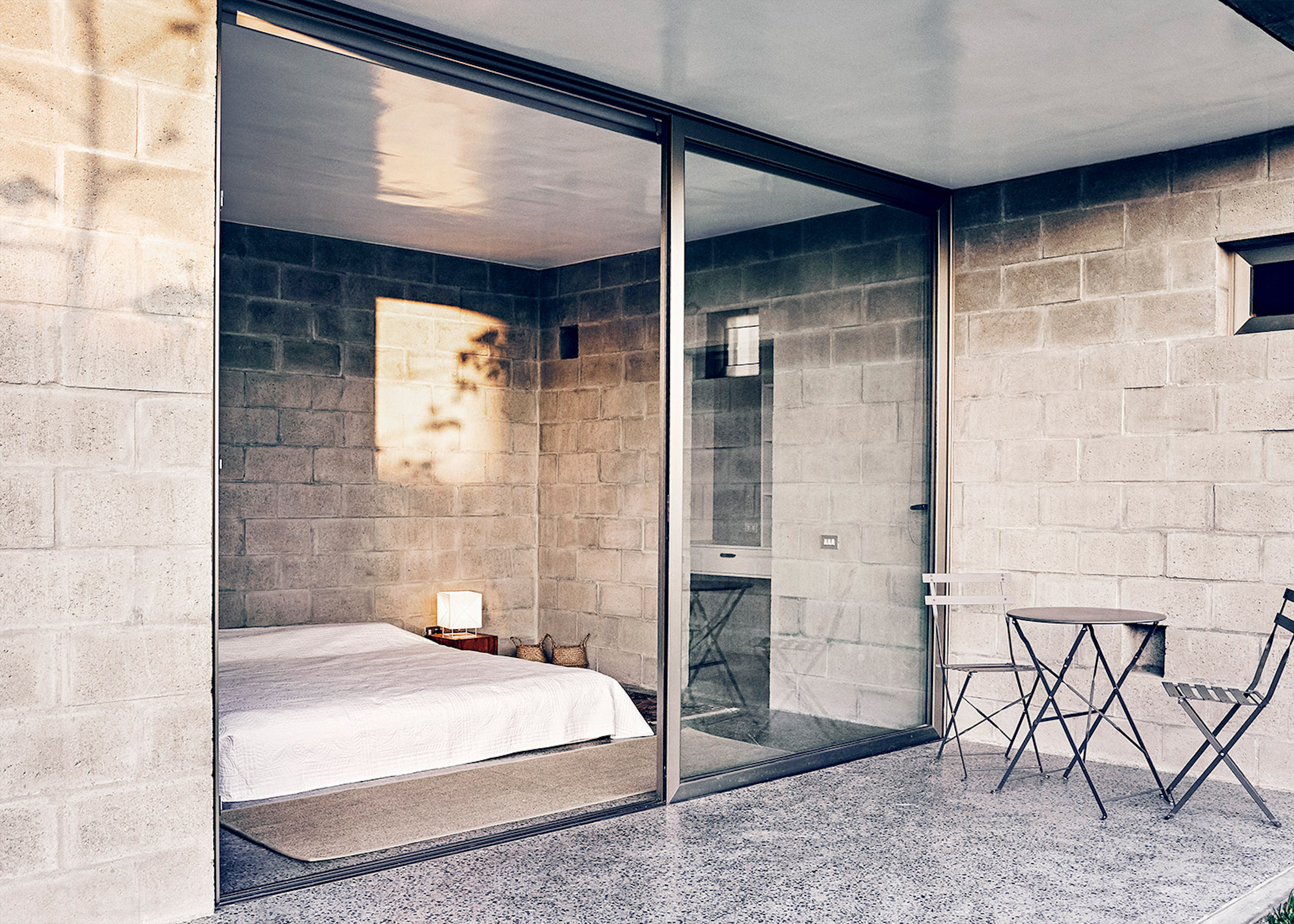
Other residences in Peru include a clifftop villa that matches the hues of the Peruvian desert and a seaside residence Marina Vella constructed with stone from a nearby mountain.
Photography is by Iván Salinero.
Project credits:
Architects: Arturo Ghezzi Novak and Gustavo Ghezzi Novak
Collaborator: Daniella Dibos de Tramontana
The post Textile House in Peru by Ghezzi Novak has concrete walls informed by woven fibres appeared first on Dezeen.
